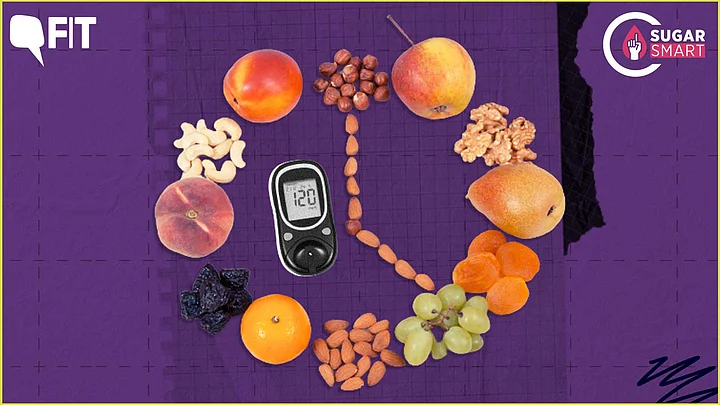Diabetes, being a global epidemic, has a high prevalence of around 11 percent, affecting 250 million people globally.
It is the leading cause of many diseases and metabolic syndromes.
Managing diabetes requires careful attention to various factors like lifestyle, medication, diet, etc. When addressing the diet, one must look for the correct type, time, and amount of foods to be included.
Maintaining regular meal timings plays a pivotal role in the management of type-2 diabetes.
Adhering to consistent meal timings helps regulate the timely release of insulin, the main hormone responsible for managing blood glucose levels.
Meal Timings & Quality: How To Keep Your Sugar Levels Controlled
Along with the timings, the quantity of the meal also matters. Having small, frequent meals can impact glucose levels positively.
Smaller meals lead to a slower release of glucose into the bloodstream which further avoids insulin spikes and improves insulin sensitivity and overall glycemic control.
A 2019 Cell study proposed that insulin and IGF-1 (Insulin-like growth factor) are primary signals of feeding time to our cellular clocks throughout the body.
There are many researches indicating a relationship between our circadian rhythm (body’s clock) and insulin secretion. And therefore, it is extremely important to periodise our meal timing and portions according to our body’s clock.
In fact, studies have also found that individuals having circadian disruptions have the highest prevalence of diabetes, impaired glucose tolerance, and metabolic syndrome.
He further added that disruptions in our body clock further disrupts the secretion of insulin.
Diabetes & Intermittent Fasting
Intermittent fasting is beneficial for reducing weight, waist circumference, and plasma cholesterol levels but actually has a lot of concerns too.
Studies have shown that intermittent fasting actually helps in reducing weight but one needs to be concerned about hypoglycemia, ketoacidosis, protein malnutrition, insufficient energy intake, and sometimes the risk of dehydration.
Following are some important reasons why eating on time and eating small meals helps in better managing diabetes:
Weight management: Eating smaller, nutrient-dense portions aids the management of weight.
It is very essential for individuals with diabetes to maintain a healthy weight as being overweight can lead to Insulin resistance which can thus worsen diabetes management.
Energy levels: Eating meals on time and having smaller meals helps maintain energy levels throughout the day as compared to large meals which would make one feel lethargic and sleepy.
Properly periodised meals help avoid prolonged hunger and prevent dizziness, fatigue, and weakness which are the consequences of low blood sugar levels.
Glycemic control: Consuming small, frequent meals prevents insulin spikes. Portioned meals lead to a slower release of sugar in the bloodstream and prevents immediate insulin spikes.
Medication management: Many individuals require medications to manage their insulin or blood glucose levels. Coordinating the meal timings with the medications is very important for a diabetic to ensure that the medications are optimised effectively.
Skipping meals can throw off the balance between food intake and medications.
Improving insulin resistance: According to a 1996 study in the Journal of Diabetes Complications, starvation diets actually aggravate insulin resistance.
Eating smaller portion sizes actually results in a slow release of insulin. If the meal is smaller, insulin being secreted will be less which would be sufficient to transport glucose across the cell membrane.
A 2022 study published in the Nutrition, Metabolism & Cardiovascular Diseases Journal found an association between food portion sizes and insulin resistance and suggested that portion size is an important determinant of insulin resistance and metabolic syndrome.
Nutritional balance: Eating smaller well rounded meals helps one include a variety of food groups.
This helps promote overall health and provide essential micronutrients as well as macronutrients which would be beneficial for managing diabetes effectively.
It is important to maintain regular meal timings and consume small well-balanced meals. These practices play a crucial role in the regulation of blood sugar levels.
Not only this, but it would also aid in weight management, ensure the medication's effectiveness, and maintain energy levels throughout the day. Incorporating these things would make things easier and effortless while managing diabetes.
(Avantii Deshpaande is a food science and nutrition expert with over 20 years of experience in the field. You can find her on Instagram at @nutritionist.avanti.)

